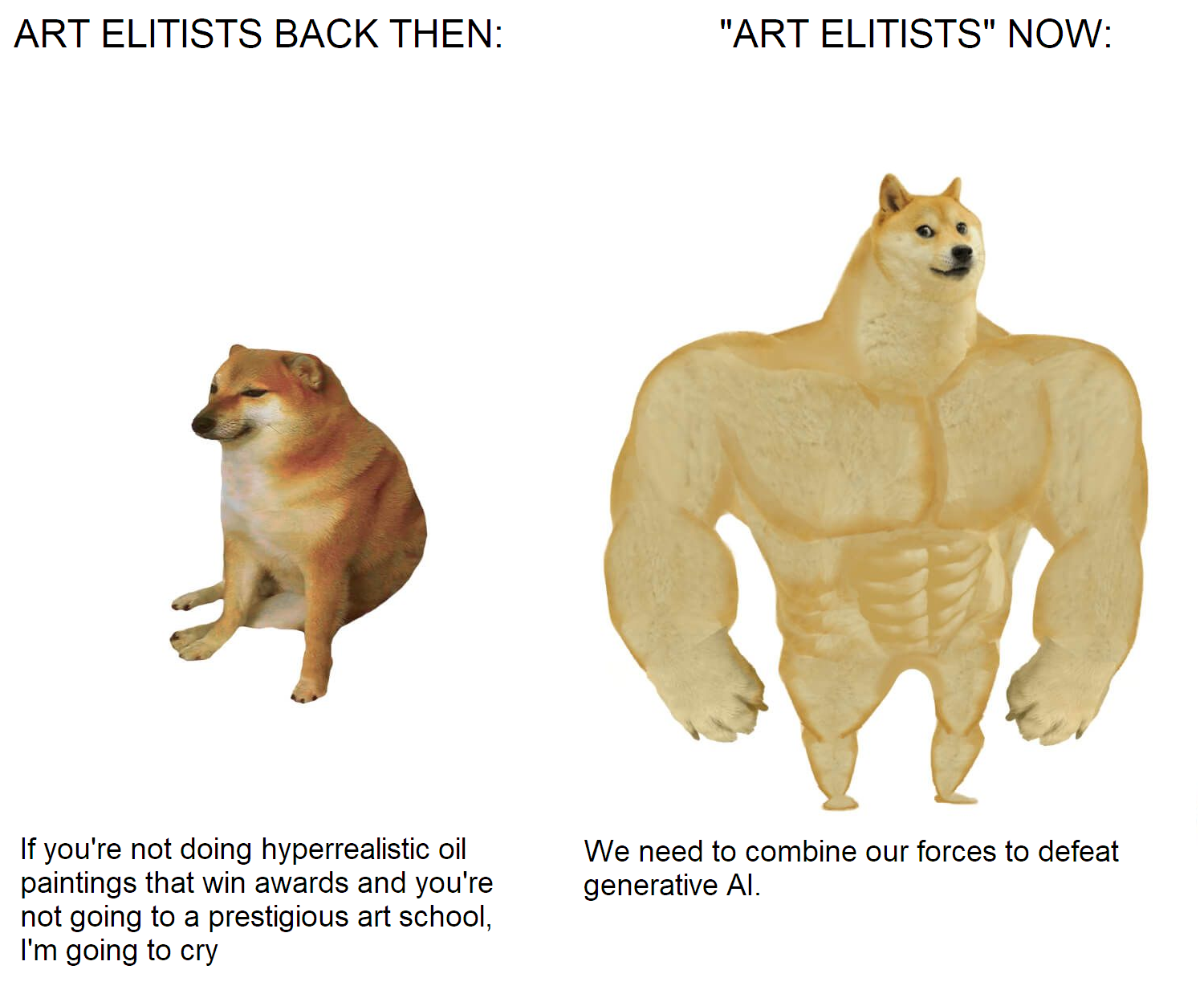this post was submitted on 13 Jul 2024
368 points (100.0% liked)
196
17928 readers
597 users here now
Be sure to follow the rule before you head out.
Rule: You must post before you leave.
Other rules
Behavior rules:
- No bigotry (transphobia, racism, etc…)
- No genocide denial
- No support for authoritarian behaviour (incl. Tankies)
- No namecalling
- Accounts from lemmygrad.ml, threads.net, or hexbear.net are held to higher standards
- Other things seen as cleary bad
Posting rules:
- No AI generated content (DALL-E etc…)
- No advertisements
- No gore / violence
- Mutual aid posts are not allowed
NSFW: NSFW content is permitted but it must be tagged and have content warnings. Anything that doesn't adhere to this will be removed. Content warnings should be added like: [penis], [explicit description of sex]. Non-sexualized breasts of any gender are not considered inappropriate and therefore do not need to be blurred/tagged.
If you have any questions, feel free to contact us on our matrix channel or email.
Other 196's:
founded 2 years ago
MODERATORS
you are viewing a single comment's thread
view the rest of the comments
view the rest of the comments

Rare EFF L.
Well, current law is not written with AI in mind, so what current law says about the legality of AI doesn't reflect its morality or how we should regulate it in the future
The law actually does a better job than you'd think. While it says little about stealing work to train neural networks, it does say that the final result requires significant human input to be eligible for copyright. It's the same precedent that prevents the copyright of a selfie taken by a monkey. Non human intelligences can't own stuff, and AI art isn't made by a human intelligence, so it's all public domain right now. It cannot be stolen unless someone has put in significantly more work on top of it.
I was talking more about whether the existence of an image AI, regardless of the images it generates, breaks copyright law because of how it was trained on copyrighted images